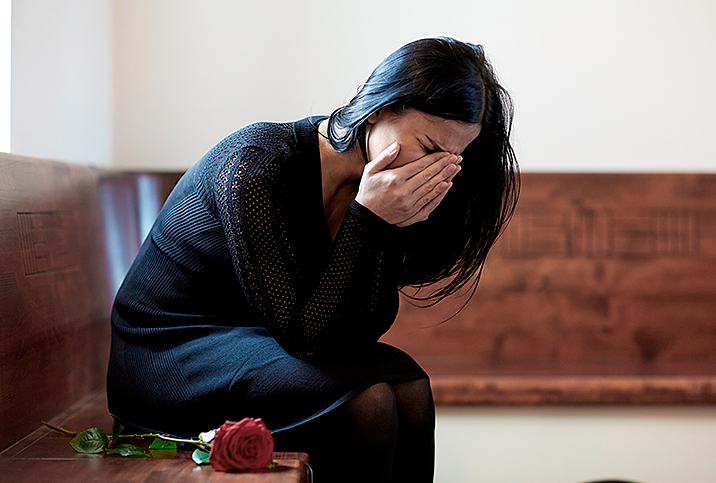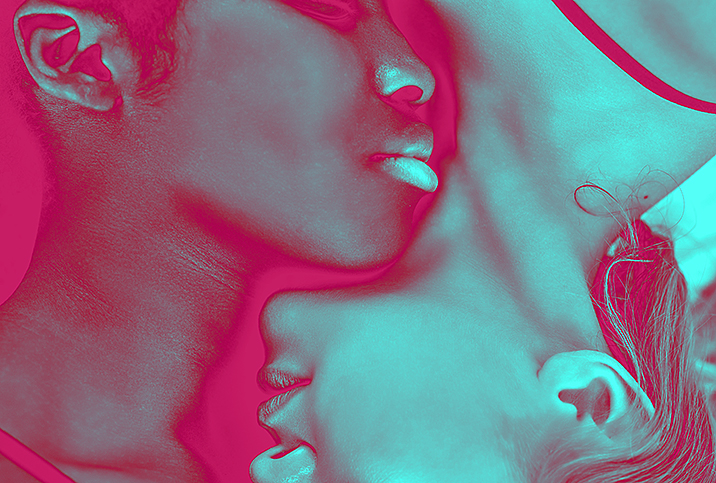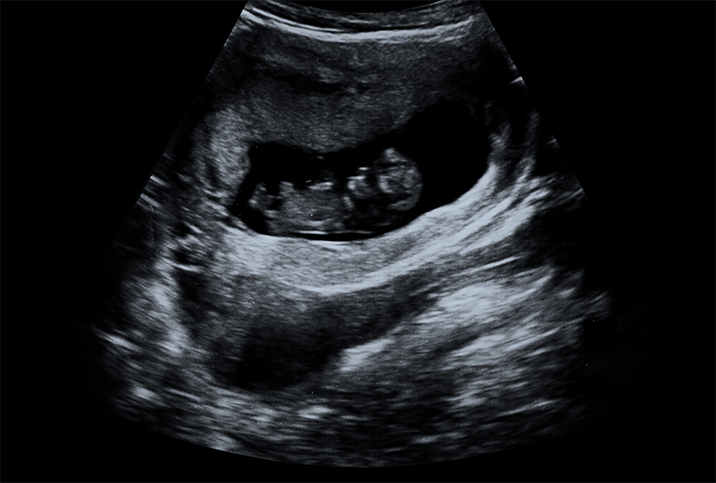Does Struggling With Grief Actually Make You Horny?

You may have heard of the five stages of grief: denial, anger, bargaining, depression and, finally, acceptance. But it might be worth adding a sixth stage: getting horny.
If you were one of the viewers who contributed to the 657 million hours of "Grey's Anatomy" watched during the pandemic in 2020, you may remember the Season 3 scene where, after George's dad died, a friend arrives at his door with a platter of baked goods. Instead of a grief-stricken George greeting them, it's his girlfriend Callie. "Thank god you're here," she blurts out. "I can't take anymore. Three times already tonight and he's getting ready for a fourth." Callie's not talking about bouts of inconsolable sobbing. She's talking about sex. The death of George's dad has made him insatiable, and Callie needs a break—and a muffin.
Or perhaps you recall in 2000s' "High Fidelity" film when Rob attends the funeral of the dad of his recent ex, Laura, not realizing she needs more than moral support. "Listen, Rob," Laura says, "would you have sex with me? Because I want to feel something else than this. It's either that or I go home and put my hand in the fire. Unless you want to stub cigarettes out on my arm."
The depths of grief
This particular carnal coping mechanism may seem like a trope of TV and film, but it's rooted in reality, even if there's more nuance in understanding how the feelings of grief and being horny coexist. Most important, grief is not only a response to the death of a loved one. It is born of deep and powerful sorrow and distress that can be brought on by the loss of a job, the end of a relationship, or a year spent inside and isolated from family and friends.
It can also be a metaphorical hole in your heart you're looking to fill, according to Patti Britton, Ph.D., a clinical sexologist in Los Angeles, who said horniness often hits before you reach the final stage of grief.
"Part of opening yourself up to sex as a remedy is that sex, invariably and naturally, brings us to a state of connection, even if we're not feeling intimate," Britton said. "All the senses are engaged in a sexual act. And what this is really a remedy for is not being alone. It's really filling the void of the empty heart."
From a purely biological perspective, post-funeral coitus is counterintuitive to genuine sexual desire, Britton added. In the early stages, grief affects the entire body, stressing your immune and nervous systems and even bringing on flu-like symptoms or physical pain. This can make a person shut down entirely (as during denial, the first stage of grief), taking to bed…alone. Not exactly the steamy scene portrayed on screen.
However, feeling desirous while grieving isn't just a salve for emptiness. Grief can also trigger what Britton called the "liberation effect," which often comes after an anticipated loss, like the death of a loved one due to a long illness or leaving a traumatic personal or professional relationship. When someone experiences a loss they've been preparing for—for months or even years—grief has already set in, and sexual desire is less about forgetting the past than it is about looking forward.
"There's an excitement about the unknown," Britton said, "and I think that the excitement is part of what wakes someone up."
Grief will jump up and bite you
In 2017, after a year and a half of dating, Lindsey, a graphic designer living in St. Louis, invited her partner to move in. The pair took their time to begin dating, having known each other since fifth grade—"We actually went to prom together," she said. Lindsey thought she knew him well, but cohabitation led to tension and, eventually, Lindsey felt unloved and uncared for. On an especially stressful day during a trip with his family, Lindsey was bitten by a dog. As blood poured down her face, her boyfriend sat unfazed, flirting with a friend he had invited on their trip.
Though that was the tipping point for Lindsey, she already knew her relationship had been spiraling for a while. But losing this partner also meant losing a constant figure in her life.
"The idea of being on my own really scared me because I was a serial monogamist for a long time," she said.
Grief settled in, and after nearly five months of moving through the stages (anger caused the destruction of several items in the homes she and her ex shared), Lindsey reached acceptance. With that came a serious desire to bone.
"I didn't know what to do with myself, but I was so horny all the time because I felt so neglected," Lindsey said.
So when she set up a profile on a dating app, looking for casual hookups was like "chasing a high," she said. In an eight-month span, Lindsey unleashed herself on 23 different men, most of whom were "one and done" affairs. Lindsey said bedding all these men was her liberation; she's now past the phase and back to dating for real.
This is all to say, a loss—sudden or anticipated—can leave you feeling libidinous. But where you are in the stages of grief may determine whether your desire for sex is a healthy one. As millions receive the COVID-19 vaccine and the world nears what feels like the possibility of a post-pandemic reality, scientists and laypeople alike are predicting a sexual awakening or a lot of random, public hookups—both of which are totally normal steps in recovering from a globally shared grief.


















